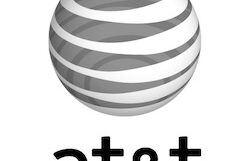Its a Black Twitter Thang! Pt. 2
A People’s History of Black Twitter
Originally published on Wired.com
Rising Up, 2012–2016
Following the death of Trayvon Martin, Black Twitter launched an online campaign in support of Martin and his family. As outcry swelled, George Zimmerman, the neighborhood watch volunteer who fatally shot Martin, was arrested—laying the groundwork for what would become the biggest social justice movement of our time.
André Brock, author of Distributed Blackness: African American Cybercultures: A lot of early Black tech adopters were really skeptical of what Twitter could do. Even Black folk were like, this is not a serious place.
Tracy Clayton, host of the podcast Strong Black Legends: Once the newness of the platform wore off, I think it was more like, OK, what do we do with our voices now that we found them? The murder of Trayvon Martin is when I first saw Black Twitter’s potential, and the potential of Twitter, to create actual offline change.
Wesley Lowery, 60 Minutes+ correspondent: My first tweet about Trayvon Martin said, “Until a 17-year-old black boy can walk into any store in America to buy Skittles without being gunned down, we can’t stop talking about race.” It was one of those first instances of getting used to the idea that I could say things and those messages could find like-minded people to participate in this dialog that was bigger than myself.
Jamilah Lemieux, Slate columnist: If it weren’t for Black Twitter, George Zimmerman would not have been arrested.
Clayton: I remember watching the trial with Twitter. I remember watching Rachel Jeantel testify and my heart breaking for the situation that she was in. It was a great vehicle not only for social change but also for healing—being able to mourn and grieve and process with people. That’s what really changed my mind about what Twitter was for. I guess, for me, it was entertainment before.
Continue reading @ Wired.com






